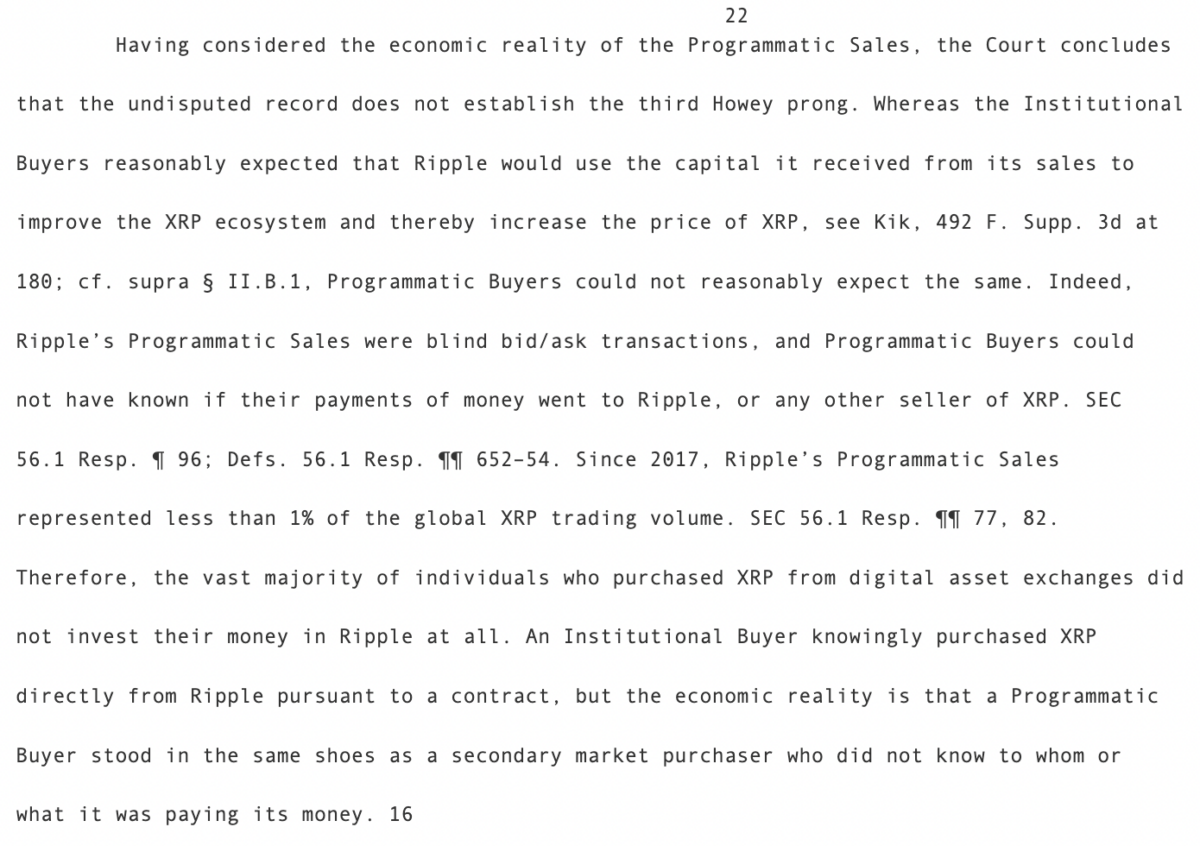In a ruling that would assist form the way forward for cryptocurrency regulation in the US, U.S. federal decide Analisa Torres has delivered a combined verdict within the case between the Securities and Trade Fee (SEC) and San Francisco-based blockchain agency Ripple Labs. The lawsuit, which has been carefully watched by the crypto business, centered on whether or not Ripple’s XRP token constituted an unregistered safety providing.
The courtroom dominated that, whereas Ripple’s institutional gross sales of XRP did certainly represent an unregistered securities providing, its gross sales of the token on exchanges didn’t. The choice — which comes after a three-year authorized battle — may set a precedent for future token classification circumstances, and at present has the crypto market rallying in response.
A very long time coming
The SEC had initially filed a lawsuit towards Ripple Labs in December 2020, alleging that the corporate had raised $1.4 billion by an unregistered securities providing. The courtroom granted a part of the SEC’s movement pertaining to $728 million in institutional gross sales.
In its ruling, the courtroom acknowledged that “reasonable investors…in the position of Institutional Buyers, would have purchased XRP with the expectation that they would derive profits from Ripple’s efforts.” Nevertheless, the courtroom additionally dominated that “XRP, as a digital token, is not in and of itself a ‘contract, transaction[,] or scheme’” that embodies the necessities of an funding contract below the Howey check.
“Having considered the economic reality of the Programmatic Sales, the Court concludes that the undisputed record does not establish the third Howey prong,” the authorized submitting learn. “Whereas the Institutional Buyers reasonably expected that Ripple would use the capital it received from its sales to improve the XRP ecosystem and thereby increase the price of XRP […], Programmatic Buyers could not reasonably expect the same.”
The courtroom’s resolution additionally addressed Ripple’s “essential ingredient” protection, during which the corporate argued {that a} bodily contract should exist to be thought-about an funding contract. The courtroom dominated towards this protection, stating that in every occasion the place Ripple supplied or offered XRP as an funding contract, a contract did exist.
The ruling additionally touched on the roles of Ripple co-founder Chris Larsen and CEO Brad Garlinghouse. The decide concluded that “Based on the disputed facts in the record, […] a reasonable juror could find that Larsen and Garlinghouse did not know or recklessly disregard Ripple’s Section 5 violations.”
In response to the ruling, Garlinghouse tweeted, “We were on the right side of the law, and will be on the right side of history.”
How the Hinman emails performed a job
The case additionally introduced consideration to the so-called Hinman paperwork, inner SEC drafts and emails referring to former director William Hinman’s speech greater than 4 years in the past. These paperwork, which Ripple’s protection staff gained entry to after they have been publically launched, advised that the regulator could also be cherry-picking which tasks to focus on.
The ruling comes at a time when the SEC has been more and more energetic in its enforcement actions towards varied cryptocurrency tasks. Nevertheless, the choice within the Ripple case could sign a shift in how the SEC approaches the classification and regulation of digital tokens and the way judicial entities contemplate related circumstances involving Web3 organizations.
The information has brought about the crypto market to rally, with the XRP token leaping to $0.6993 and ETH rising to $1,988, respectively placing the tokens up 48.61 % and 5.21 % on the day on the time of writing.
Editor’s be aware: This text was written by an nft now employees member in collaboration with OpenAI’s GPT-4.


